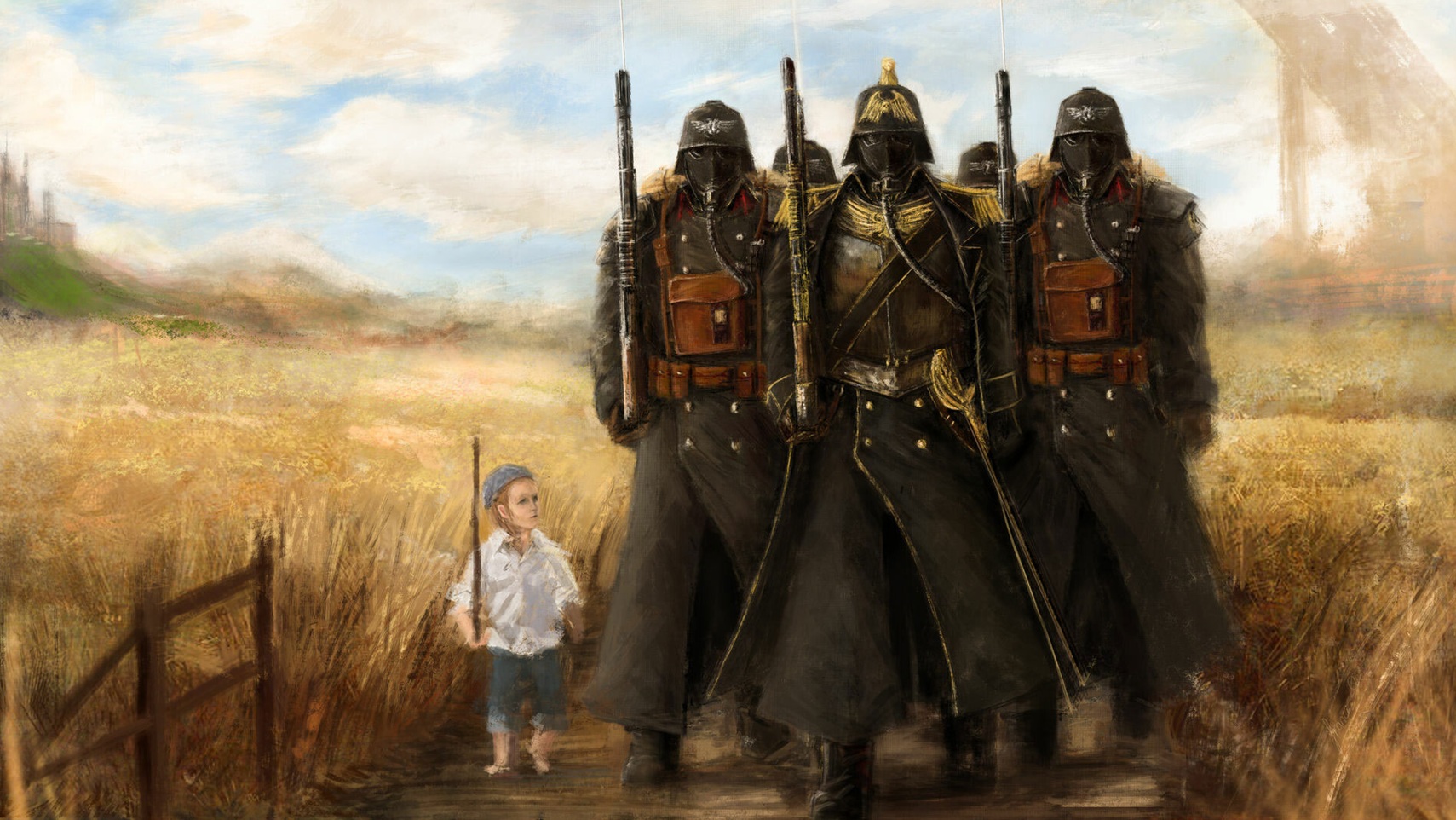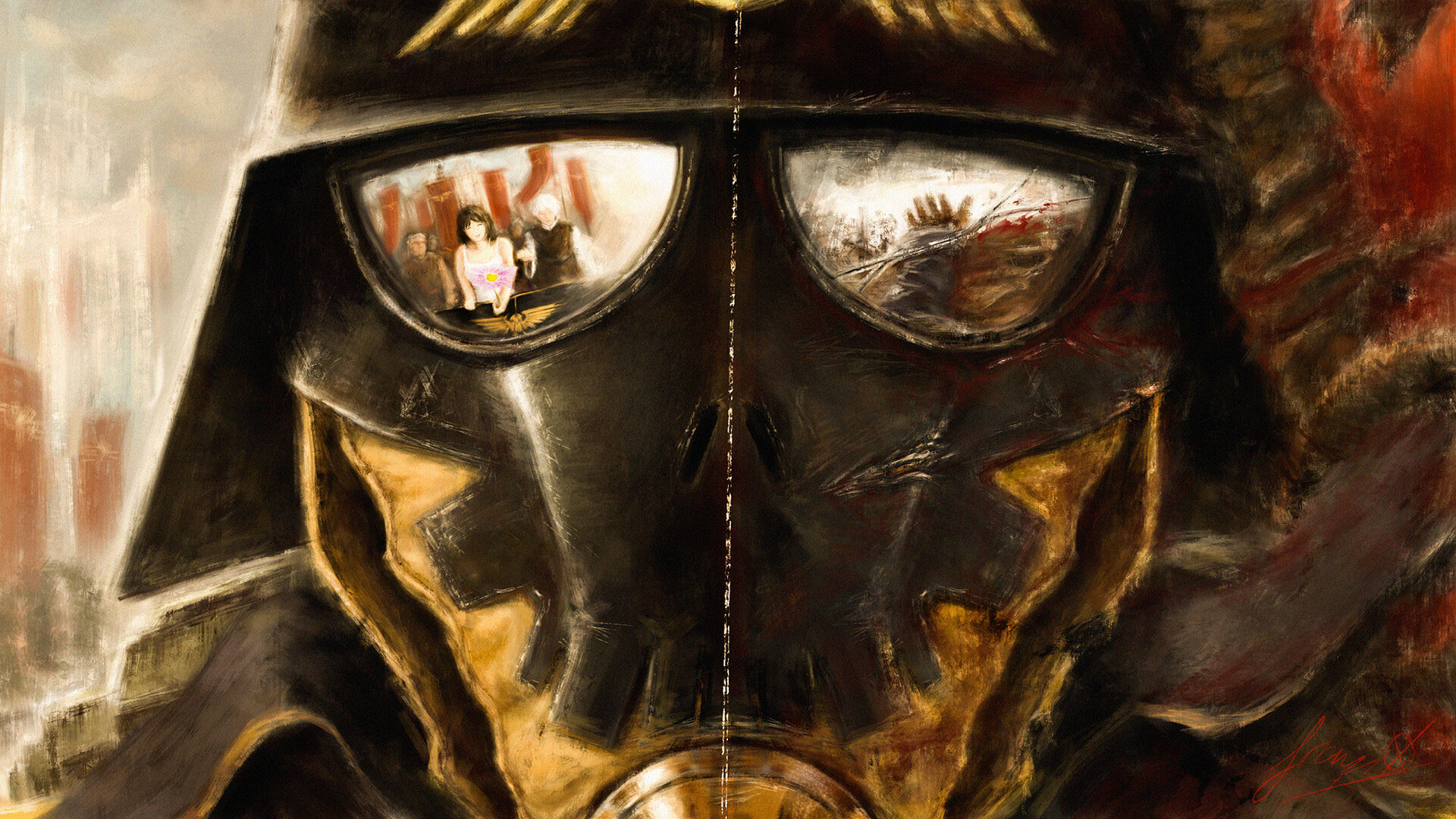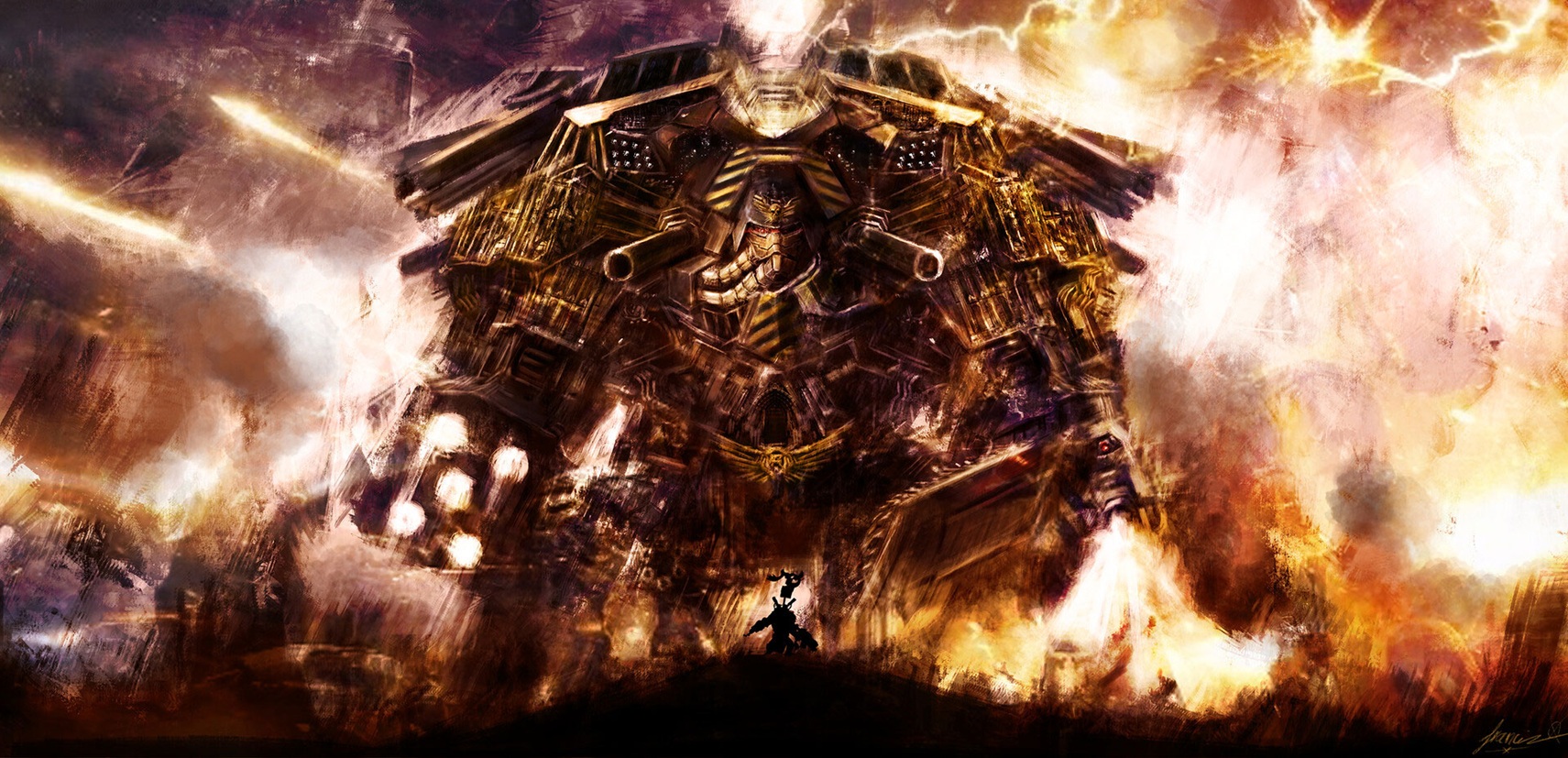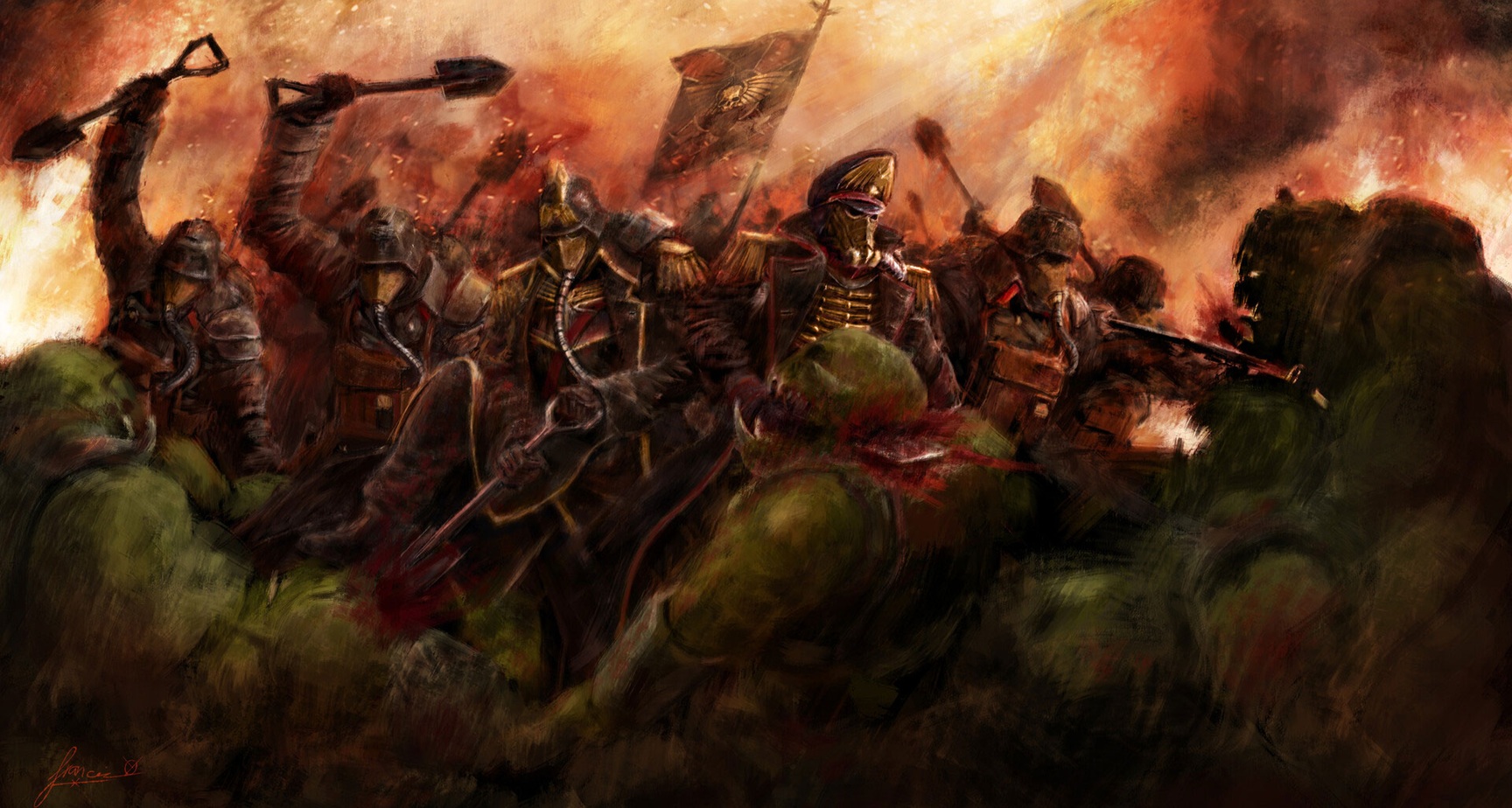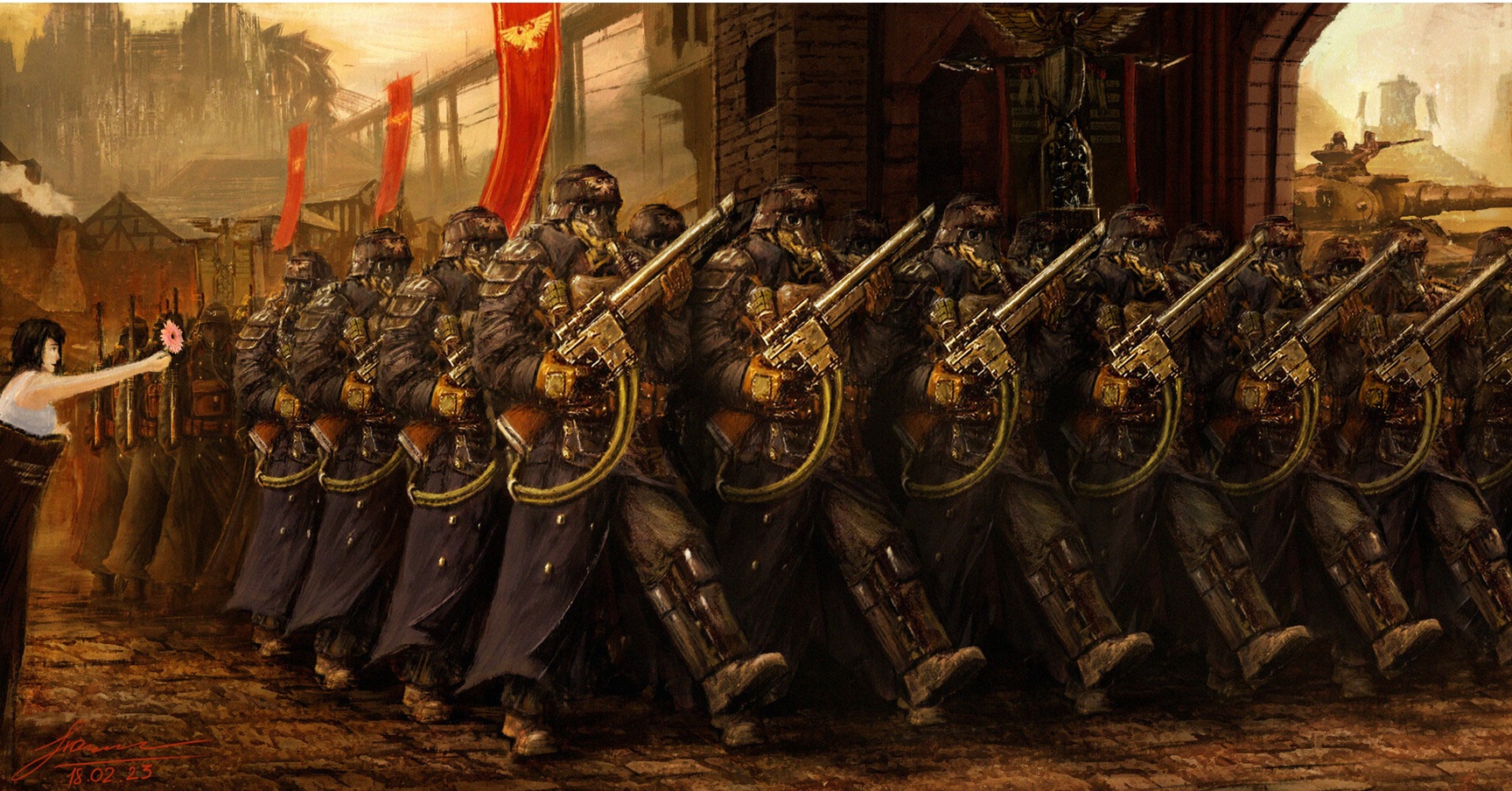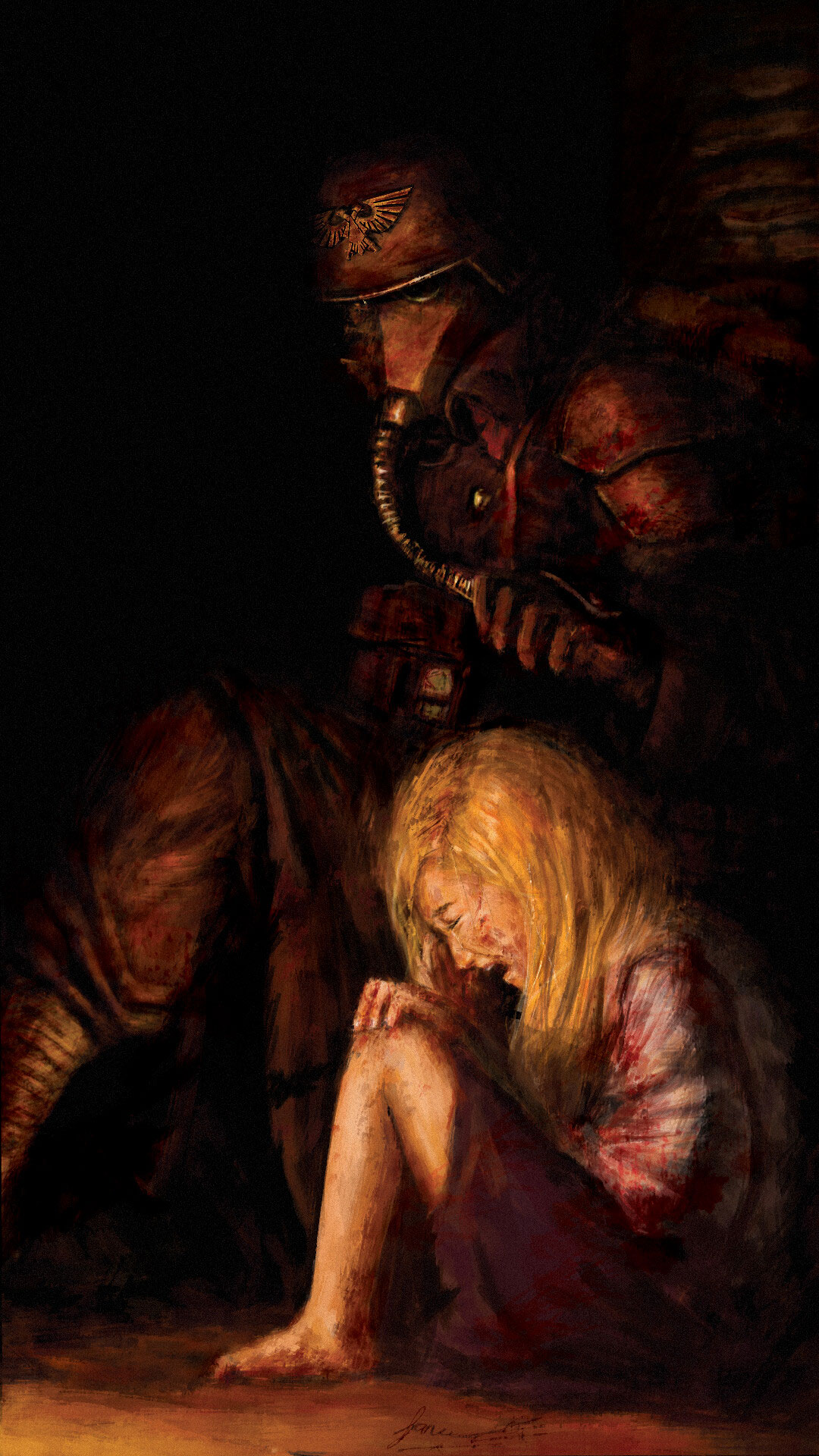
Shadows and Shelter: A Death Korps Soldier’s Silent Compassion
Shadows and Shelter
In this evocative painting, a soldier of the Death Korps of Krieg sits quietly in the shadows, offering silent comfort to a young girl. The child, blonde-haired and bloodied, curls into herself on the ground, sobbing in grief and fear. The Krieg soldier, battle-worn and smeared with grime, does not speak—he simply stays close, guarding her in this small, flickering moment of humanity. The darkness around them swallows nearly everything, focusing our attention solely on the fragile bond between protector and survivor. His towering presence is not threatening here, but solemn, like a silent sentinel bearing witness to suffering. It is a rare glimpse of compassion from a soul bred for war.
The Silent Watcher
This image says much through what it does not show: no words, no action, just presence. The soldier’s helmet, marked by the Imperial Aquila, is bowed slightly—not in shame, but perhaps in recognition of the cost of survival. He has seen too much to be shaken by death, but the girl has not, and so he guards her as she breaks. There is an emotional tension in the scene, held in the quiet distance between them—a distance that speaks of discipline, respect, and perhaps unspoken sorrow. The use of deep reds and dark tones creates a painting heavy with trauma, yet still holding a single ember of empathy. It’s a powerful contradiction: a killer holding space for a child to weep.
Death Korps of Krieg: A Glimpse Behind the Mask
The Death Korps of Krieg are infamous for their cold efficiency and suicidal bravery, often deployed to the most brutal warzones of the Imperium. They hail from the irradiated world of Krieg, where loyalty to the Emperor was restored only after a catastrophic civil war and generations of trench warfare. Raised from birth to die in the Emperor’s name, they speak little, feel less, and fight without hesitation. Yet even the most indoctrinated can still be human in rare, unguarded moments. This artwork peels back the mask—not to reveal a face, but to suggest that behind the steel and doctrine, remnants of decency remain. The soldier says nothing, but his choice to stay says everything.


